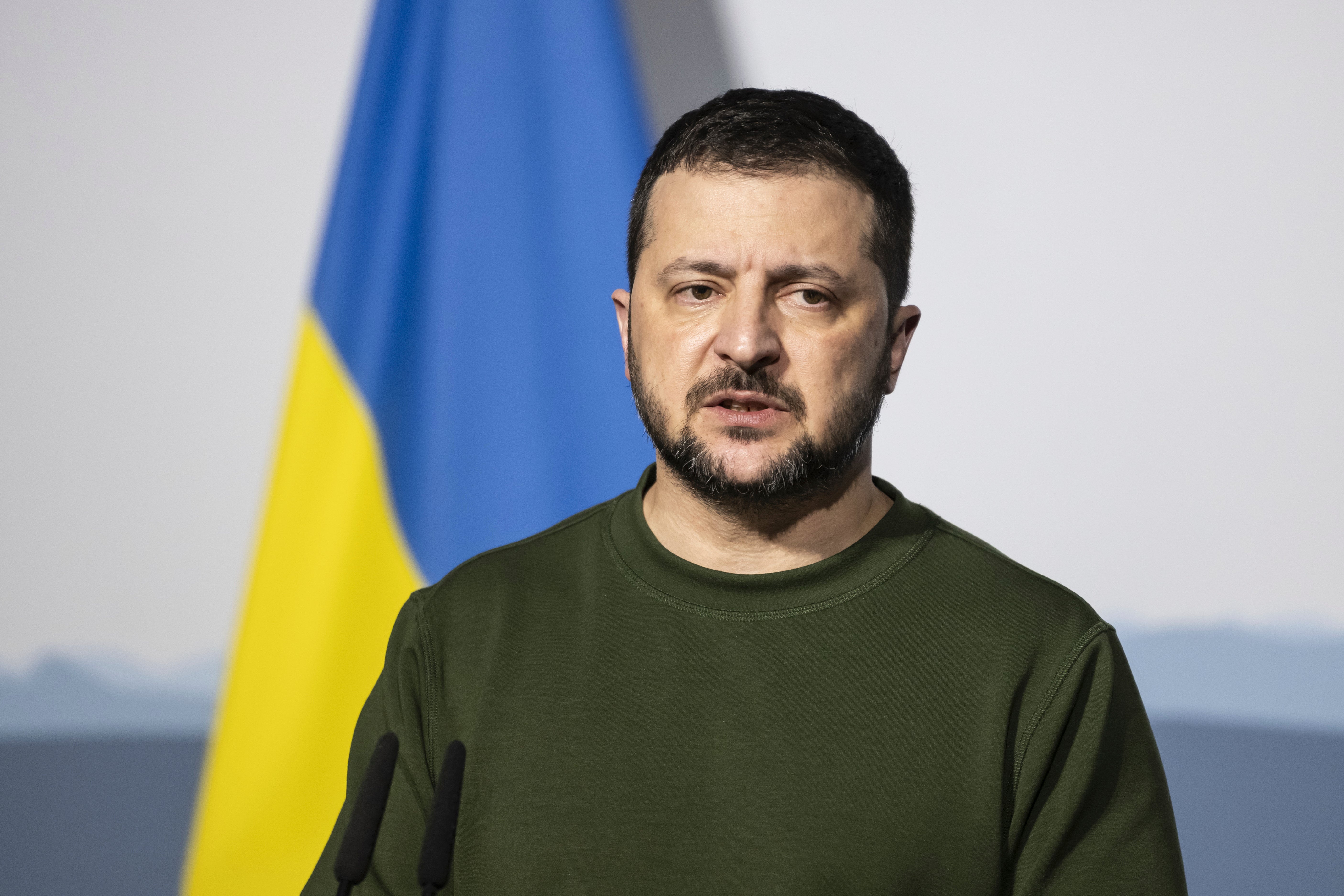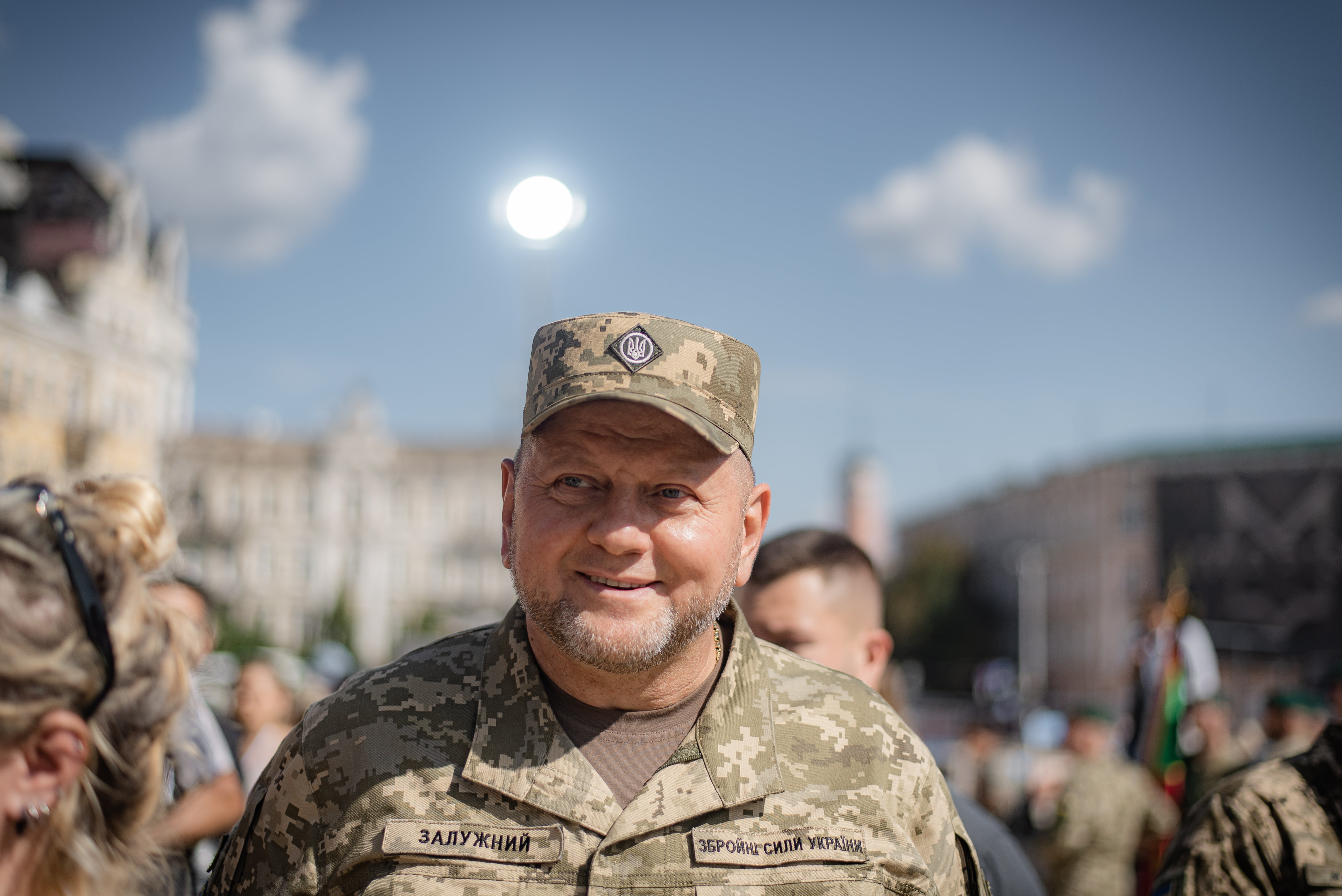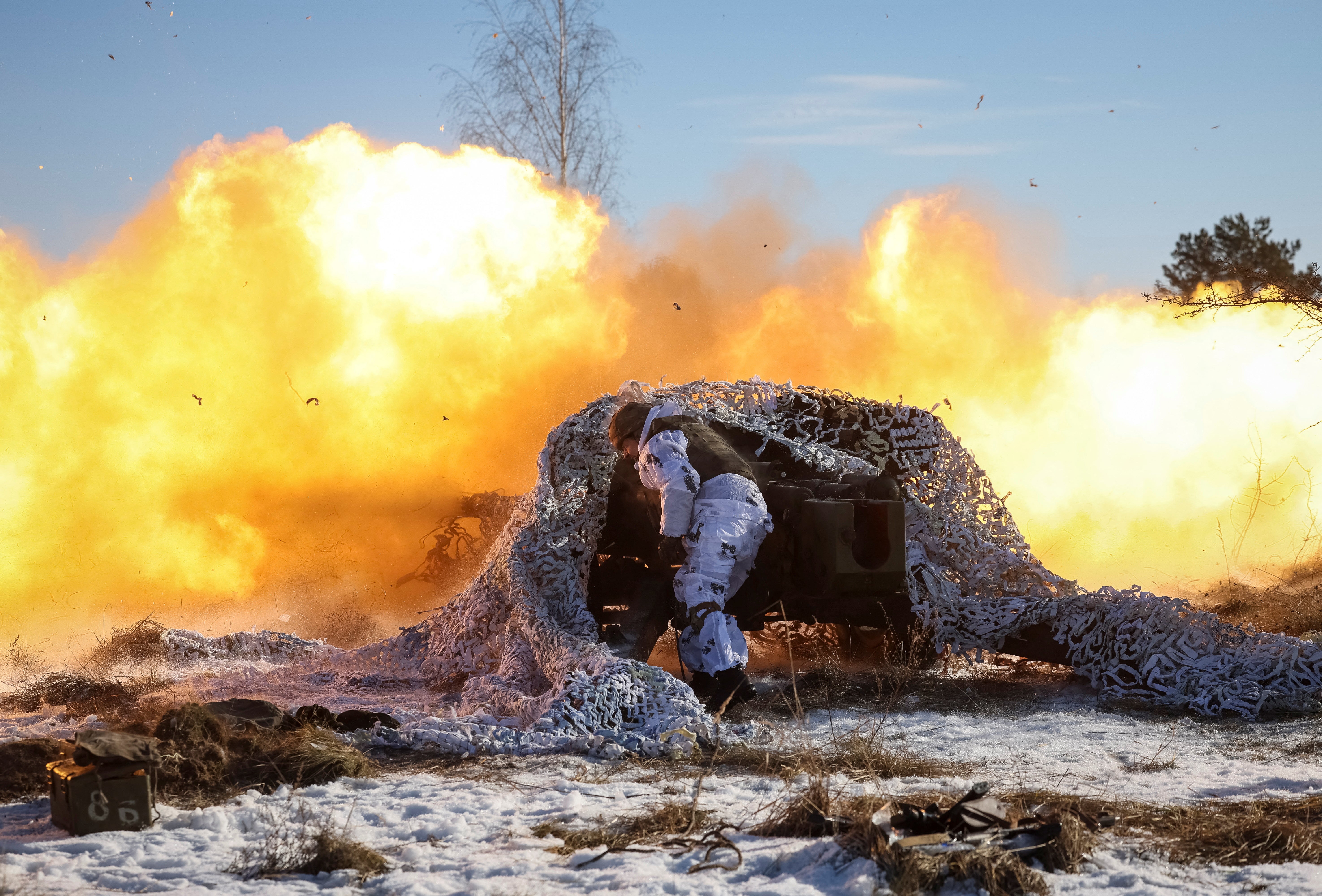The rift between Zelensky and Ukraine’s top general comes at a crucial time for Kyiv
It is clear that the country’s president would like to replace his most popular commander but that is proving more difficult than it looks, writes Askold Krushelnycky. With key Western allies still unable to agree to fresh aid and Russia stepping up both air and ground attacks, the clash has boiled over at a bad time

One of Ukraine’s chief strengths in its fight against Russia’s invasion has been its immense sense of national unity, with every sector of society involved in repelling the Russian invasion.
But the apparent attempt by the country’s president, Volodymyr Zelensky, to remove Ukraine’s top – and vastly popular – military commander, General Valery Zaluzhny, from his post has revealed cracks in that unity.
Zelensky is said to have asked Zaluzhny to leave his post during a meeting on Monday but the general refused. Zelensky’s spokesman, Sergii Nykyforov, refuted that Zaluzhny had been asked to leave his role as military commander and offered another job, possibly as an adviser on defence or an ambassador. But the reports continued to come.
The military’s spokespeople have kept quiet. But the tepid government response is seen as a sign. Zelensky, masterful at being a rousing and powerful communicator in messages to the nation, did not try to demolish the reports or lavish praise on his top general. That confirmed for many Ukrainians that the reports were not too far from the mark and that there is clearly a rift between Zelensky and Zaluzhny.
There have been mutterings about divisions between some in Ukraine’s government and military figures for months, fuelled by rumours of envy within Zelensky’s administration that opinion polls consistently showed that Zaluzhny was more popular than the president and could even win in an election for the nation’s top job. It’s a scenario that Zaluzhny has sought to play down, saying he is only focused on defending Ukraine from Russia’s forces.
Volodymyr Aryev, an MP from Ukraine’s main opposition party European Solidarity, suggested last November that Zelensky wanted to fire Zaluzhny. The party and its leader, former president Petro Poroshenko, have criticised any attempts to remove Zaluzhny as a threat to national unity.

Zelensky would not have wanted Zaluzhny’s fate to become such a hot-button issue. Given the general’s popularity, removing him could hurt the morale of Ukrainian civilians and military alike, as the country faces a surge in Russian air attacks and its military faces shortages of vital ammunition and weapons as Russia steps up assaults along parts of the 600-mile front line.
On Thursday, EU leaders will meet in Brussels to push through €50bn (£43bn) in aid for Ukraine, which has been blocked by Hungary’s prime minister Viktor Orban. Having been unable to get Orban – who is friendly towards Russia and Vladimir Putin – to back down in December, they will try again. It comes as the bloc’s foreign policy chief, Josep Borrell, said the EU would reach only 52 per cent of its target to send one million rounds of artillery to Ukraine by March this year. Kyiv’s most important ally, the US, has also struggled to pass billions of pounds in fresh funding for Ukraine thanks to political squabbling.
A Ukrainian counteroffensive that started last summer has failed to make the gains both Kyiv and its Western allies would have liked. Acknowledging that in November, Zaluzhny said the front line was in stalemate, a characterisation rejected by the president without directly criticising the commander. But differences between Zelensky and Zaluzhny continued to surface – most prominently when the government dismissed hundreds of members of the military involved in their country’s recruitment and conscription system following widespread accusations, accompanied by much proof, that many of those operating the system were taking bribes to let men evade conscription.
Zaluzhny criticised the wholesale dismissal of long-serving conscription personnel as misguided, saying that they had at least been able to maintain a flow of fresh recruits while their inexperienced replacements would not be able to provide enough badly needed recruits to replenish the high number of casualties suffered by Ukrainian forces and to allow for the rotation or release of exhausted soldiers, many of whom had seen service with few breaks since the start of Russia’s invasion in February 2022.
Zaluzhny, who became commander of Ukraine’s forces in July 2021, is credited for his troops successfully defending the country against Moscow’s forces at the start of the war. Some 97 per cent of Ukrainians say they trust the armed forces Zaluzhny commands and he enjoys widespread respect among officers and ordinary members of the armed forces. Many of them cite Zaluzhny’s care to minimise casualties among his forces, in stark contrast to Putin and his generals’ willingness to squander tens of thousands of lives in suicidal human wave assaults against Ukrainian positions.

But Zaluzhny’s concern about the lives of his soldiers has also prompted accusations that he was too cautious about launching the summer offensive. Zaluzhny blamed the failure of the offensive on a delay by Ukraine’s Western allies in providing sufficient armoured vehicles, powerful artillery and rocket systems and F-16 fighter planes for air cover.
A former senior figure in the Pentagon and Nato told The Independent that many felt that Zaluzhny may have been able to punch through Russian lines by concentrating massive resources at one or two points, flooding them with men and equipment to clear mines and then sending through the armoured vehicles and men he already had.
The source said: “That might have initially cost many Ukrainian lives but many less than the number lost because Ukrainian forces haven’t made the large advances that might have brought the war to an end last year.”
He also criticised Zaluzhny for not pressing home the attack when his forces drove Russian forces from huge swathes of territory in Ukraine’s northeastern Kharkiv region in a surprise offensive in the autumn of 2022. “When the enemy is running you should pursue and finish them off,” he said.
In Ukraine, rumours are swirling about who might succeed Zaluzhny as Ukraine’s top general. One of those is General Oleksandr Syrskyi, commander of Ukraine’s ground forces since 2019. He is credited with overseeing the successful defences of the capital, Kyiv, and Ukraine’s second city, Kharkiv, as they faced massive Russian attacks in the first weeks of Russia’s invasion. He has often been singled out for praise by Zelensky’s administration but some reports suggest he may have been offered Zaluzhny’s post already and declined.
There has also been speculation that the chief of Ukraine’s military intelligence, General Kyrylo Budanov, might replace Zaluzhny. Budanov, at 37, a generation younger than Zaluzhny or Sirskyi, has gained great popularity for his bold tactics which have included spectacular strikes against the Russian navy in Crimea, the bridge linking mainland Russia with the occupied peninsula, attacks by his special forces deep within Russia, and drone attacks that have latterly caused destruction in Moscow and St Petersburg.
Russia has, predictably, sought to rub salt in the wound over the situation concerning Zaluzhny, with Kremlin spokesman Dmitry Peskov pointing to it in his daily briefings.
Zelensky will care much more about what his military, people and Western allies think – and he will be under pressure to swiftly resolve the situation by either moving Zaluzhny from his job as top military commander, or reaffirming him in it.






Join our commenting forum
Join thought-provoking conversations, follow other Independent readers and see their replies
Comments